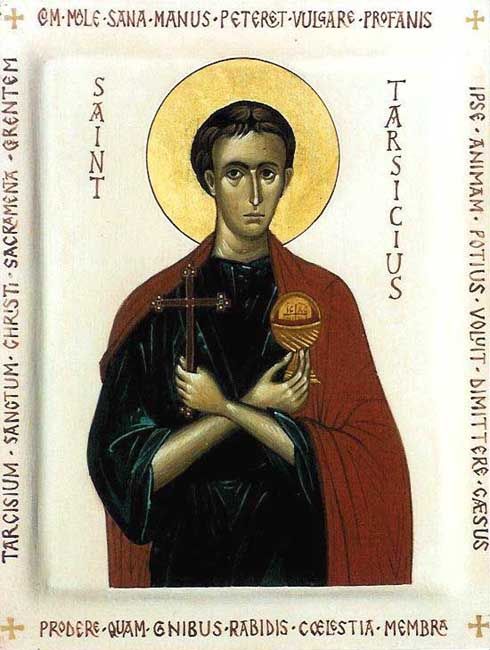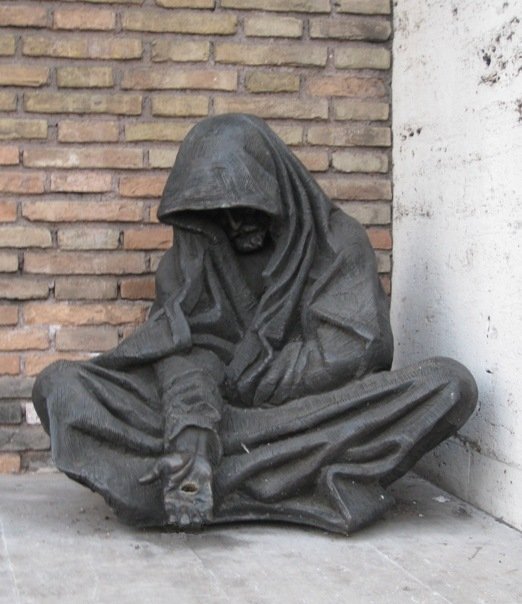A *truly* extraordinary Minister!
 Since in JP2 we’ve been studying early Christian worship, we’ve been talking a lot about the Eucharist. A story which illustrates the importance of the Eucharist to the Early Church is that of St. Tarsicius.
Since in JP2 we’ve been studying early Christian worship, we’ve been talking a lot about the Eucharist. A story which illustrates the importance of the Eucharist to the Early Church is that of St. Tarsicius.
St. Tarsicius was an acolyte (one of the minor orders of clergy) who was killed by a gang of pagans as he carried a portion of the Eucharist from the Eucharistic liturgy.
It is quite likely that he was taking Holy Communion to someone sick or in prison. At that time it was also the practice for some of the consecrated bread to be taken from the bishop’s Mass to the other Masses around the city as a sign of unity with the bishop.
Here is how Tarsicius’ story is recorded in the Roman Martyrology:
“…the heathen met [him] bearing the sacrament of the Body of Christ and asked him what it was he carried. He judged it a shameful thing to cast pearls before swine, and so was attacked by them for a long time with sticks and stones, until he gave up the ghost. When they turned over his body, the sacrilegious assailants could find no trace of Christ’s sacrament, either in his hands or among his clothing.”
– Roman Martyrology
The Eucharist – a meal worth dying for…
